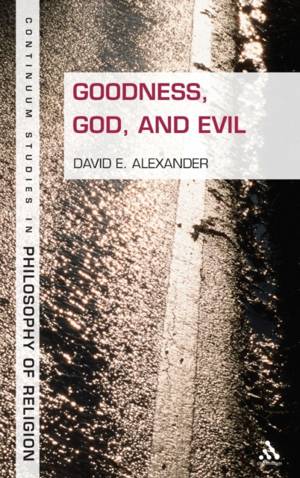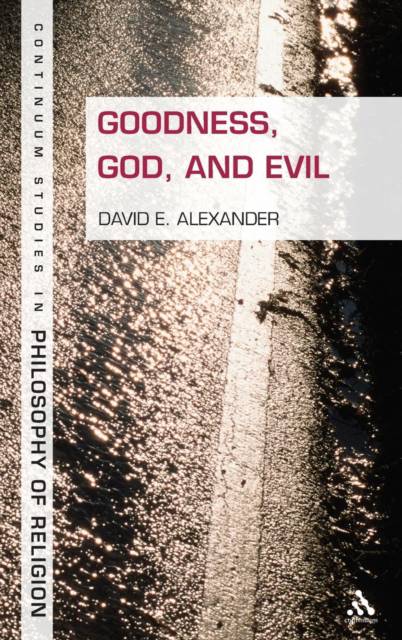
- Afhalen na 1 uur in een winkel met voorraad
- Gratis thuislevering in België vanaf € 30
- Ruim aanbod met 7 miljoen producten
- Afhalen na 1 uur in een winkel met voorraad
- Gratis thuislevering in België vanaf € 30
- Ruim aanbod met 7 miljoen producten
Zoeken
Omschrijving
Most contemporary versions of moral realism are beset with difficulties. Many of these difficulties arise because of a faulty conception of the nature of goodness. Goodness, God, and Evil lays out and defends a new version of moral realism that re-conceives the nature of goodness.
Alexander argues that the adjective 'good' is best thought of as an attributive adjective and not as a predicative one. In other words, the adjective 'good' logically cannot be detached from the noun (or noun phrase) that it modifies. It is further argued that this conception of the function of the adjective implies that recent attempts to provide necessary a posteriori identities between goodness and something else must fail. The convertibility of being and goodness, the privation theory of evil, a denial of the fact-value distinction, human nature as the ground of human morality and even a novel argument for the existence of God are some of the implications of the account of goodness that Alexander offers.Specificaties
Betrokkenen
- Auteur(s):
- Uitgeverij:
Inhoud
- Aantal bladzijden:
- 168
- Taal:
- Engels
- Reeks:
- Reeksnummer:
- nr. 2
Eigenschappen
- Productcode (EAN):
- 9781441138552
- Verschijningsdatum:
- 24/05/2012
- Uitvoering:
- Hardcover
- Formaat:
- Genaaid
- Afmetingen:
- 155 mm x 229 mm
- Gewicht:
- 385 g

Alleen bij Standaard Boekhandel
+ 644 punten op je klantenkaart van Standaard Boekhandel
Beoordelingen
We publiceren alleen reviews die voldoen aan de voorwaarden voor reviews. Bekijk onze voorwaarden voor reviews.







